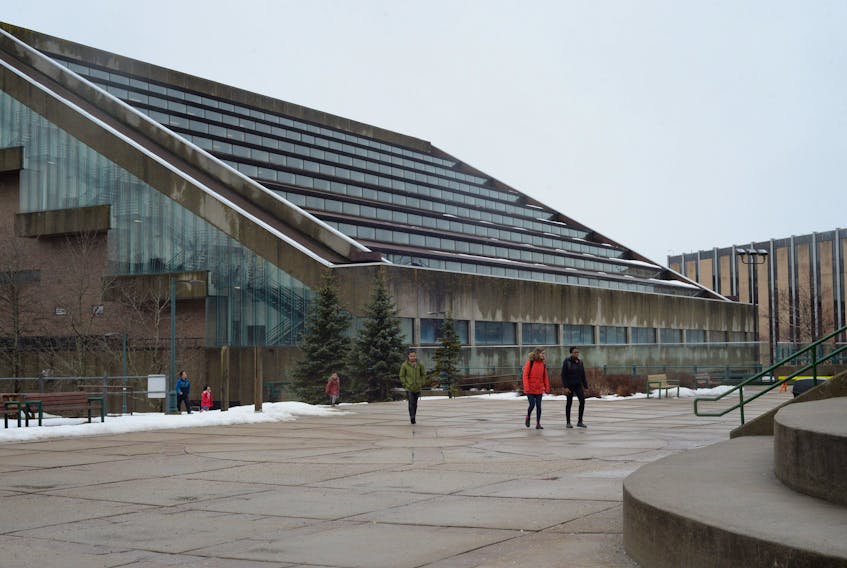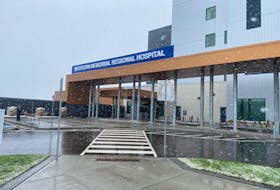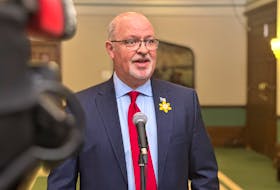ST. JOHN'S, N.L. - Of the more than $2 billion the province will spend on education in this year’s budget, nearly a quarter will be channelled towards the post-secondary system.
Memorial University will receive an operating grant of $366 million — $55 million of which accounts for the faculty of medicine’s grant — with the government again reminding taxpayers that it is the highest public investment as a percentage of a university’s general operating revenues of any university in Canada.
When you remove the medical school from the equation, it means about $5 million less for MUN.
MUN students, meanwhile, will see an additional $4 million to maintain current tuition levels.
Combined with the $1.1 million allocated for College of the North Atlantic tuition levels, the province is investing a total of 73.1 million.
CNA’s operational funding for its 17 campuses is $87.6 million for 2018.
The province is also committing to an independent review of the public post-secondary system, similar to what was done for the K-12 system, to explore how the Newfoundland and Labrador system compares to other jurisdictions and make recommendations on how to achieve better outcomes more cost effectively.
“This review will help ensure our institutions are well-positioned to meet the needs of students well into the future, address emerging labour market demands, and continue to contribute to the province’s economic growth,” Finance minister Tom Osborne’s budget speech reads.
Until such time that a terms of reference for the review is established, the cost of the review is unknown.
In terms of post-second infrastructure investments in 2018-19, $36.3 million has been allocated for MUN’s new core science building, animal rescue centre and continued re-development of the Battery facility.
Another $15 million is being earmarked for the continued construction of the CNA’s heavy equipment centre in Stephenville and upgrades to the school’s Centre for Energy and Thermal Systems.
Full budget coverage:
- Newfoundland and Labrador struggles with debt, government forecasting surplus in 2022
- How the new Newfoundland and Labrador budget could affect you
- Budget 2018: No start date yet for constructing new Waterford Hospital
- Budget 2018: Disaster spending goes up in Newfoundland and Labrador
K-12
The Premier’s Task Force on Improving Educational Outcomes identified 82 recommendations and the 2018 Budget includes $6.9 million in new funding to address some of those.
Fifteen have been implemented to date, and government expects half to be in place by September.
The big-ticket item is $3.1 million to reading specialists, learning resource teachers, and instructional assistants.
Government will also spend $1.9 million this year to support professional learning for teachers, with a commitment of almost $2 million for the next three years.
Other investments include:
• $975,000 for additional government resources to support implementation of recommendations
• $500,000 for learning resource supports and school libraries
• $113,000 for youth apprenticeship/co-operative education
• $40,000 in bursaries for K-6 teachers to upgrade math pedagogy
There are plans to spend $15.5 million for repairs and maintenance of existing schools and $11.4 million to begin construction of an intermediate school in Paradise and a replacement for the Coley’s Point Primary in Bay Roberts.
There’s $4.3 million to complete an extension for Mobile Centre High School; $1.4 million to plan for a new Francophone school and replacement for Bay d’Espoir Academy; and $900,000 for a new school bus depot in Corner Brook.
Early childhood development
Early childhood development is allocated $61.6 — $22 million of which is coming over three years through a bilateral agreement under the federal government’s child care strategy.
“This supports early learning and child care options through subsidies, grants bursaries, and professional learning opportunities.”
The province will spend $12.4 million to expand and enhance the operating grant program for child care service providers and to create a new operating grant program for regulated family child care homes.
There’s also $3 million for the child care services subsidy program.
Other investments include:
• $1.5 million to enhance the child care capacity initiative by further increasing the net family income threshold (after income testing) to $35,000
• $1.7 million for administration of programs and services
• $3 million for the capital renovation grant program and new quality improvement grant for licensed child care centres
• $450,000 for increased bursaries and grants for professional learning for early childhood educators
Skills development
The province will invest more than $21 million in skills development and training programs, with employment and training programs accounting for $13.1 million, another $6.1 million for youth-focused employment and career-related activities and $1.3 million to bolster the apprenticeship system.
Government is also introducing $194,000 for a new student mentorship program to support career development opportunities in agriculture, aquaculture, oil and gas and technology.
“The program, which is supported by federal funding, will provide 25 youth with work experience in each of these targeted sectors for a total 100 jobs,” the speech reads.
This province is also contributing $69,000 to the Atlantic Workforce Partnership Secretariat, which will be established in Newfoundland for a three-year term.









